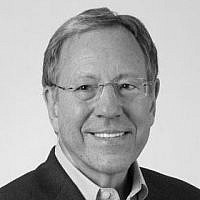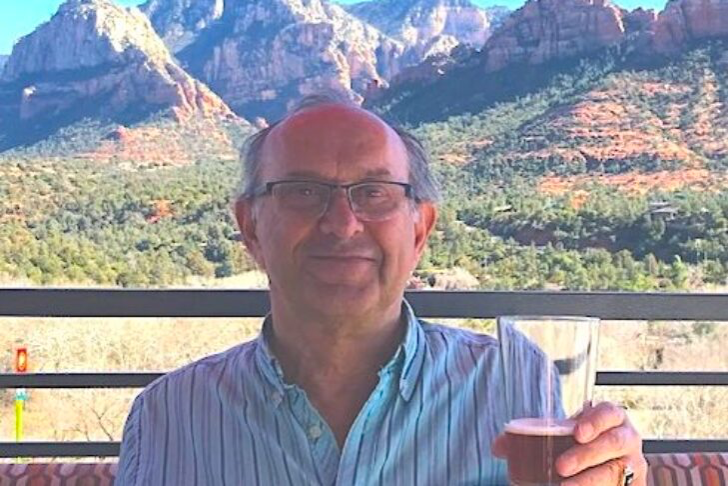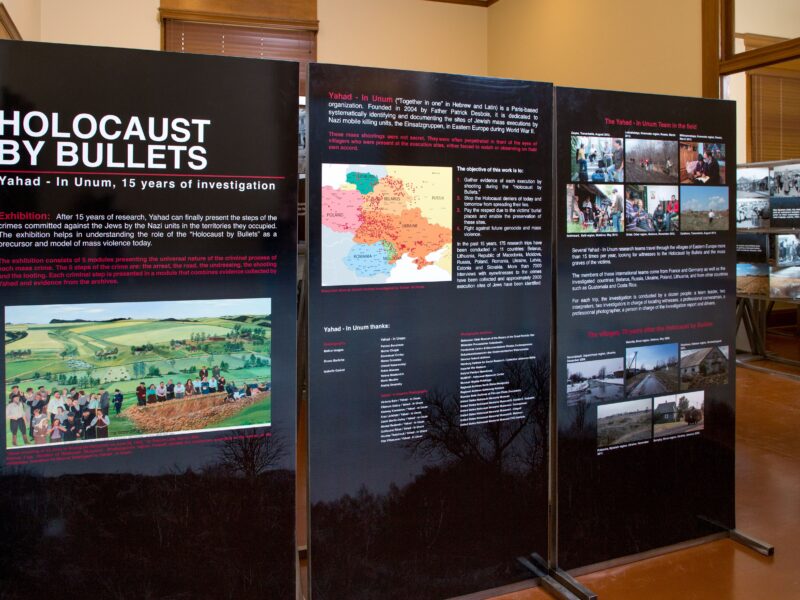By Irwin Cotler
I write on the occasion of International Holocaust Remembrance Day – marking the 77th anniversary of the liberation of the death camp Auschwitz, the most brutal extermination camp of the 20th century, and remembrance and reminders of horrors too terrible to be believed but not too terrible to have happened.
I write also in the aftermath of the oft-ignored – if it is even known at all – 80th anniversary of the Wannsee Conference, convened to address “The Final Solution to the Jewish Question”, the blueprint for the annihilation of European Jewry – met by the indifference of the international bystander community. Accordingly, I welcome the UN General Assembly Resolution, adopted on its 80th anniversary which not only condemned Holocaust denial and distortion but called on member states, social media companies, and others to combat these evils.
I write also in the wake of the 77th Anniversary of the arrest and disappearance of Raoul Wallenberg on January 17th, 1945 – Canada’s first Honourary Citizen, and an Honourary Citizen of the U.S., Australia, and Israel. Wallenberg, a Swedish diplomat who rescued some 100,000 Jews in the last six months of 1944 alone – more than any other single government or organization – demonstrated how one person with the compassion to care and courage to act can confront evil, prevail and transform history. It remains a tragedy that this hero of the Holocaust who saved so many was not saved by so many who could. We, the countries of Raoul Wallenberg’s honorary citizenship, owe him, his family, and all those saved by this Hero of Humanity a duty to secure truth and justice.
I write also amidst the international drumbeat of evil including the mass atrocities targeting the Uyghurs, Rohingya, Afghans, and Africans; the increasing assaults on the rules-based order by Russia and China, involving Russia’s threatening moves re Ukraine, and China’s intensified assaults on democracy and media freedom in Hong Kong and elsewhere; the Iranian regime’s intensification of its domestic repression, and its denial of truth, justice, and accountability for the victims in its criminal downing two years ago of flight PS752, which a Canadian court recently characterized as an “intentional act of terrorism”; the increasing imprisonment of human rights defenders and the culture of impunity accompanying it – the whole amidst an ongoing international bystander community. We need to learn from, and act, upon Raoul Wallenberg’s heroic life and legacy if we are to build just and accountable societies.
And I write also amidst a global resurgence of antisemitic incitement, violence, and terror. Indeed, just two weeks ago, we witnessed the targeting of Congregation Beth Israel in Colleyville, Texas on the Sabbath; the holding of the rabbi and his congregants hostage by a British Islamist hostage-taker, uttering antisemitism tropes; and threatening to kill the hostages if they did not use their “power” to secure the release of an imprisoned jihadist in an American prison who had herself engaged in antisemitic tropes and incitement. Fortunately, the rabbi and his congregants emerged unharmed, though the trauma will not quickly abate.
But this antisemitic terror attack, which the FBI and some media initially characterized as “a random attack unrelated to the Jewish community”, was yet another in the drumbeat of antisemitism – the oldest, longest, most enduring, and most dangerous of hatreds; a virus which mutates and metastasizes over time but is grounded in one foundational, historical, antisemitic, conspiratorial trope: namely, that Jews, the Jewish people, and Israel are the enemy of all that is good and the embodiment of all that is evil, regardless of what moment in time we are experiencing or living in.
And so, at this important historical moment, we should ask ourselves: What have we learned in the last 77 years – and more importantly – what must we do?
Lesson One: Zachor – the danger of forgetting and the imperative of remembrance.
The first lesson is the danger of forgetting – the killing of the victims a second time – and the imperative of remembrance – zachor – le devoir de mémoire. As we remember the victims of the Shoah – defamed, demonized and dehumanized as prologue and justification for genocide – we must understand that the mass murder of six million Jews and millions of non-Jews is not a matter of abstract statistics.
As we say at these moments of remembrance, “Unto each person there is a name, each person has an identity, each person is a universe.” As the Talmud reminds us, “Whoever saves a single life, it is as if he or she has saved an entire universe.” Thus, the abiding universal imperative: we are each, wherever we are, the guarantors of each other’s destiny.
Lesson Two: the Holocaust as a paradigm for radical evil and antisemitism as a paradigm for radical hate – learning and acting upon these intersections
The second lesson is the danger of antisemitism – the oldest and most enduring of hatreds – and the most lethal. If the Holocaust is a metaphor for radical evil, antisemitism is a metaphor for radical hate. Let there be no mistake about it: Jews were murdered at Auschwitz because of antisemitism, but antisemitism itself did not die. It remains the bloody canary in the mineshaft of global evil today. And as we have learned only too painfully and too well, while antisemitism begins with Jews, it doesn’t end with Jews. As Ahmed Shaheed, the Special Rapporteur for Freedom if Religion and Belief put it in his landmark report to the United Nations, antisemitism is “toxic to democracies”, a threat not only to Jews but to our common humanity.
Lesson Three: The danger of state-sanctioned incitement to hate and genocide – the responsibility to prevent.
The third enduring lesson is that the genocide of European Jewry – like the genocide of the Tutsi in Rwanda, whose 28th anniversary we approaching, where 10,000 Tutsis were murdered every day for three months – succeeded not only because of the machinery of death, but because of a state-sanctioned ideology of hate. For example, the Jew was seen as the personification of the devil – as the enemy of humankind – and humanity could only be redeemed by the death of the Jew. The Canadian Supreme Court affirmed – and as echoed by the International Criminal Tribunal for Rwanda – “the Holocaust did not begin in the gas chambers – it began with words.” Indeed, in another important principle and precedent, the Supreme Court held that the very incitement to genocide constitutes the crime in and of itself, whether or not acts of genocide follow.
Lesson Four: Holocaust denial – from assaultive speech to criminal conspiracy, the responsibility to unmask the bearers of false witness
The fourth enduring lesson concerns the Holocaust denial movement – the cutting edge of antisemitism old and new – which is not just an assault on Jewish memory and human dignity in its accusation that the Holocaust is a hoax; rather, it constitutes an international criminal conspiracy to cover up the worst crimes in history. Here is the historiography of the Holocaust in its most tragic, bitter irony – in its ultimate Orwellian inversion. First, we move from the genocide of the Jewish people to a denial that the genocide ever took place; then in a classic Orwellian cover-up of an international conspiracy, the Holocaust Denial movement whitewashes the crimes of the Nazis, as it excoriates the crimes of the Jews. It not only holds that the Holocaust was a hoax, but maligns the Jews for fabricating the hoax, something which is now being repeated in the genocidal denial in Rwanda.
It is our responsibility to unmask the bearers of false witness, to expose the criminality of the deniers as we protect the dignity of their victims.
Lesson Five: the proliferation of Holocaust distortion, trivialization, minimization, revisionism, and inversion – the responsibility to combat
The fifth enduring lesson concerns the horrifying rise of Holocaust distortion, particularly in social media – a phenomenon that threatens not only our relationship to the truth but our collective relationship to history. As I write the Covid-19 pandemic continues to be weaponized, where Jews, the Jewish people, and Israel are blamed for manufacturing the virus, for causing its spread, and profiting from it. Similarly, a related phenomenon is that of Holocaust trivialization and minimization – where the symbols and imagery of the Holocaust are also weaponized – as when anti-vaxxers wear a Yellow Star or compare themselves to inmates at Auschwitz; and Holocaust revisionism, where extremist collaborators with the Nazis are glorified as heroes; and Holocaust inversion, where Jews/Israel are compared to Nazis and accused of Nazi-like crimes.
The recently adopted UN General Assembly Resolution re combatting Holocaust denial and distortion is as timely as it is necessary.
Lesson Six: The danger of silence in the face of evil – the responsibility to protest injustice
The sixth lesson is the danger of complicity by way of silence or inaction. As Elie Wiesel put it in his famed 1986 Nobel Prize lecture,
We must always take sides. Neutrality helps the oppressor never the victim, silence encourages the tormentor never the tormented… wherever men or women are persecuted because of their race, religion or political views that place must – at that moment – become the center of the universe.” And he added: “there may be times when we are powerless to prevent injustice, but there must never be a time where we fail to protest against injustice.
And so it is our responsibility, as Elie Wiesel taught us, to speak truth to power and to hold power accountable to truth, as Elie did so memorably on receiving the Congressional Medal of Freedom for his efforts.
Lesson Seven: Indifference and inaction in the face of mass atrocity and genocide – the responsibility to protect
The seventh painful and poignant lesson is that Holocaust crimes – the genocide such as that of the Tutsis in Rwanda – resulted not only from state-sanctioned incitement to hatred and genocide, but from crimes of indifference, from conspiracies of silence – from the international community as bystander.
Indeed, what makes the Holocaust and the genocide of the Tutsis so unspeakable are not only the horror of the crimes, but that these crimes were preventable. No one can say that we did not know; we knew, but we did not act.
Today we know but have yet to act to combat the mass atrocities targeting the Uyghers in the Xinjiang region of China, or the assaults on the Rohingya, or ethnic cleansing in Ethiopia, ignoring the lessons of history and mocking the responsibility to protect doctrine (R2P).
Let there be no mistake about it, indifference and inaction always mean coming down on the side of the aggressor never the victim. In the face of evil, indifference is acquiescence to if not complicity with evil itself.
Lesson Eight: Combating mass atrocity and the culture of impunity – the responsibility to bring war criminals to justice
The eighth lesson calls on us to combat mass atrocity and the culture of impunity that underpins it. If the last century – symbolized by the Holocaust – was the age of atrocity, it was also the age of impunity. Few of the perpetrators were brought to justice; and so, just as there must be no sanctuary for hate, no refuge for bigotry, there must be no base or sanctuary for these enemies of humankind. In this context, the establishment of the International Criminal Court (ICC) was seen as the most dramatic development in international criminal law since Nuremberg. But the ICC must guard against an abuse of its mandate and mission lest it undermine its very purpose.
Lesson Nine: La trahison des clercs – speaking truth to power
The ninth lesson is that the Holocaust was made possible not only because of the “bureaucratization of genocide,” as Robert Lifton put it – and as the Wannsee Conference and the Nazi desk murderer Adolf Eichmann personified – but because of the trahison des clercs, the betrayal of the elites, including scientists and doctors, judges and lawyers, church leaders and educators, engineers and architects.
Nuremberg crimes, then, were also the crimes of the Nuremberg elites. It is our responsibility, then, to speak truth to power, to hold power accountable to truth.
The “double entendre” of Nuremberg – of Nuremberg racism and Nuremberg principles – must be part of our learning as it is part of our legacy.
Lesson Ten: The assault on the vulnerable and powerless – the responsibility to give voice to the voiceless
The tenth lesson concerns the vulnerability of the powerless and the powerlessness of the vulnerable, as dramatized at Auschwitz by the remnants of shoes and suitcases, crutches and hair of the murdered. Indeed, it is revealing, as Prof. Henry Friedlander points out in his work titled “The Origins of Nazi Genocide” that the first group targeted for killing were the Jewish disabled.
It is our responsibility to give voice to the voiceless and to empower the powerless, be they the disabled, poor, elderly, women victimized by violence, or vulnerable children – the most vulnerable of the vulnerable. In a word, the test of a just society is how it treats its most vulnerable among them.
May I say a closing word to the survivors and what I have learned from you. For you have endured the worst of inhumanity but somehow found in the resources of your own humanity the will to go on, the resilience to build families and relationships, and to make enduring contributions to every community and country you inhabit. We are all your beneficiaries and we will continue to be inspired by your teachings and your example.
As well, you have often told me, including when we were together in visits to Auschwitz that it is not the case that if there had been no Holocaust there would not have been a State of Israel. It is the other way around, and we should never forget it: that if there had been a State of Israel – the indigenous homeland for an indigenous Jewish people, there would not have been a Holocaust or the many horrors of Jewish and human history.
And so, together with you, we must remember – and pledge – that never again will we be indifferent to incitement and hate; never again will we be silent in the face of evil; never again will we indulge racism and antisemitism, the most dangerous of hatreds; never again will we ignore the plight of the vulnerable; and never again will we be indifferent in the face of mass atrocity and impunity.
We will speak up – and act – against racism, against hate, against antisemitism, against mass atrocity, against injustice – and against the crime of crimes whose name we should even shudder to mention – genocide – which you singularly and painfully experienced, and from whom we draw the existential lessons of Jewish history and human history.






